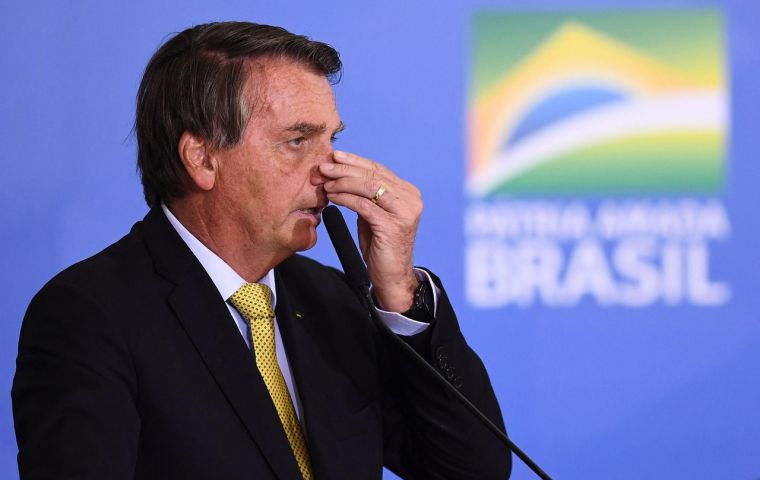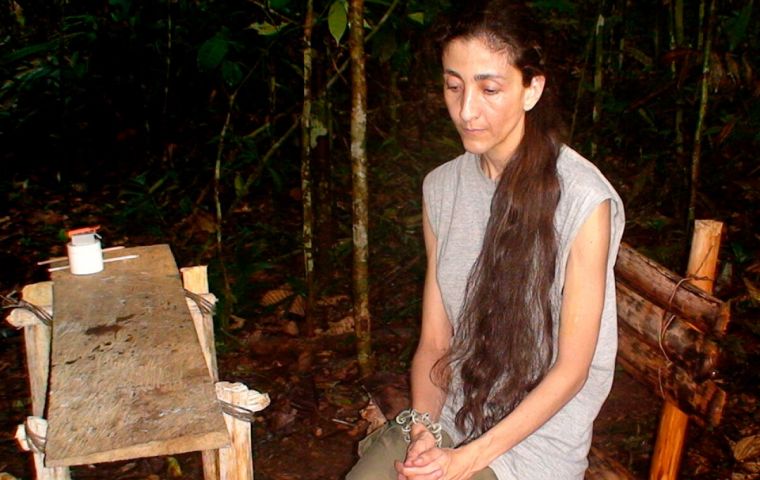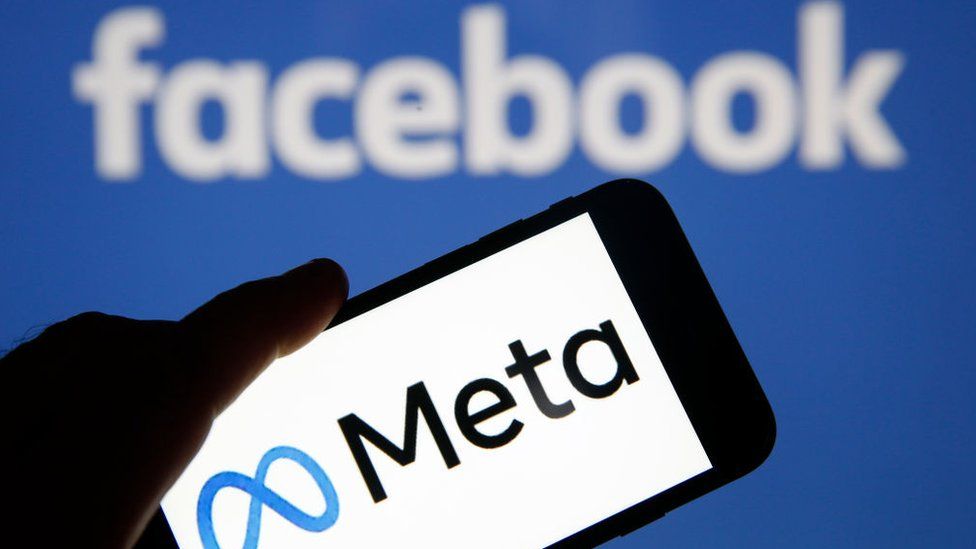Human rights violations and deforestation are not new to Brazil's indigenous communities, Canineu said
President Jair Bolsonaro represents a “threat” to Brazilian democracy, according to Lawyer Maria Laura Canineu, head of the NGO Human Rights Watch (HRW) local office.
Canineu focused on the situation of journalists in the country, as well as that of indigenous communities of the Amazon region.
HRW also recommended that the international community monitor possible attacks on institutions in this election year. “2021 was marked by very serious threats from President Bolsonaro to the pillars of democracy, Bolsonaro has tried to intimidate judges of the Supreme Federal Court, tried to discredit the electoral system and attacked the media,” Canineu said upon launching HRW's annual report Thursday.
Regarding freedom of expression, she pointed out that the picture is “very worrying,” because Bolsonaro harasses journalists at all times. According to Reporters Without Borders, Bolsonaro has attacked journalists at least 90 times in the first half of 2021.
Another form of threat to ”freedom of expression was through the persecution of the president's critics with the opening of criminal investigations against journalists applying the National Security Law that was promulgated during the dictatorship (1964-1985),“ Canineu went on.
The head of HRW Brazil also highlighted the constraints to which the native communities were subjected, especially in the Amazon region. ”The government promoted deforestation, made failures in combating violence against indigenous people, there was an increase in invasions of indigenous territories,“ Canineu stressed.
”The government empowers people who promote the destruction of the Amazon (while) people who defend the environment face an extremely dangerous situation,“ she added.
Canineu also insisted neither human rights violations against ancestral communities nor deforestation were ”new problems in Brazil.“ Although the HRW document deals with the outlook in 2021, Canineu mentioned that 2022 will be a key year for democratic stability due to the Oct. 2 presidential elections.
”This year Brazilians are going to exercise their right to vote, the elections have to be free and this is a right that cannot be affected,“ she highlighted. ”One of the main messages of our report is for the international community to remain vigilant, to monitor any attempt to attack the electoral system, to weaken the democratic state,” Canineu concluded.
President Jair Bolsonaro represents a “threat” to Brazilian democracy, according to Lawyer Maria Laura Canineu, head of the NGO Human Rights Watch (HRW) local office.
Canineu focused on the situation of journalists in the country, as well as that of indigenous communities of the Amazon region.
HRW also recommended that the international community monitor possible attacks on institutions in this election year. “2021 was marked by very serious threats from President Bolsonaro to the pillars of democracy, Bolsonaro has tried to intimidate judges of the Supreme Federal Court, tried to discredit the electoral system and attacked the media,” Canineu said upon launching HRW's annual report Thursday.
Regarding freedom of expression, she pointed out that the picture is “very worrying,” because Bolsonaro harasses journalists at all times. According to Reporters Without Borders, Bolsonaro has attacked journalists at least 90 times in the first half of 2021.
Another form of threat to ”freedom of expression was through the persecution of the president's critics with the opening of criminal investigations against journalists applying the National Security Law that was promulgated during the dictatorship (1964-1985),“ Canineu went on.
The head of HRW Brazil also highlighted the constraints to which the native communities were subjected, especially in the Amazon region. ”The government promoted deforestation, made failures in combating violence against indigenous people, there was an increase in invasions of indigenous territories,“ Canineu stressed.
”The government empowers people who promote the destruction of the Amazon (while) people who defend the environment face an extremely dangerous situation,“ she added.
Canineu also insisted neither human rights violations against ancestral communities nor deforestation were ”new problems in Brazil.“ Although the HRW document deals with the outlook in 2021, Canineu mentioned that 2022 will be a key year for democratic stability due to the Oct. 2 presidential elections.
”This year Brazilians are going to exercise their right to vote, the elections have to be free and this is a right that cannot be affected,“ she highlighted. ”One of the main messages of our report is for the international community to remain vigilant, to monitor any attempt to attack the electoral system, to weaken the democratic state,” Canineu concluded.







